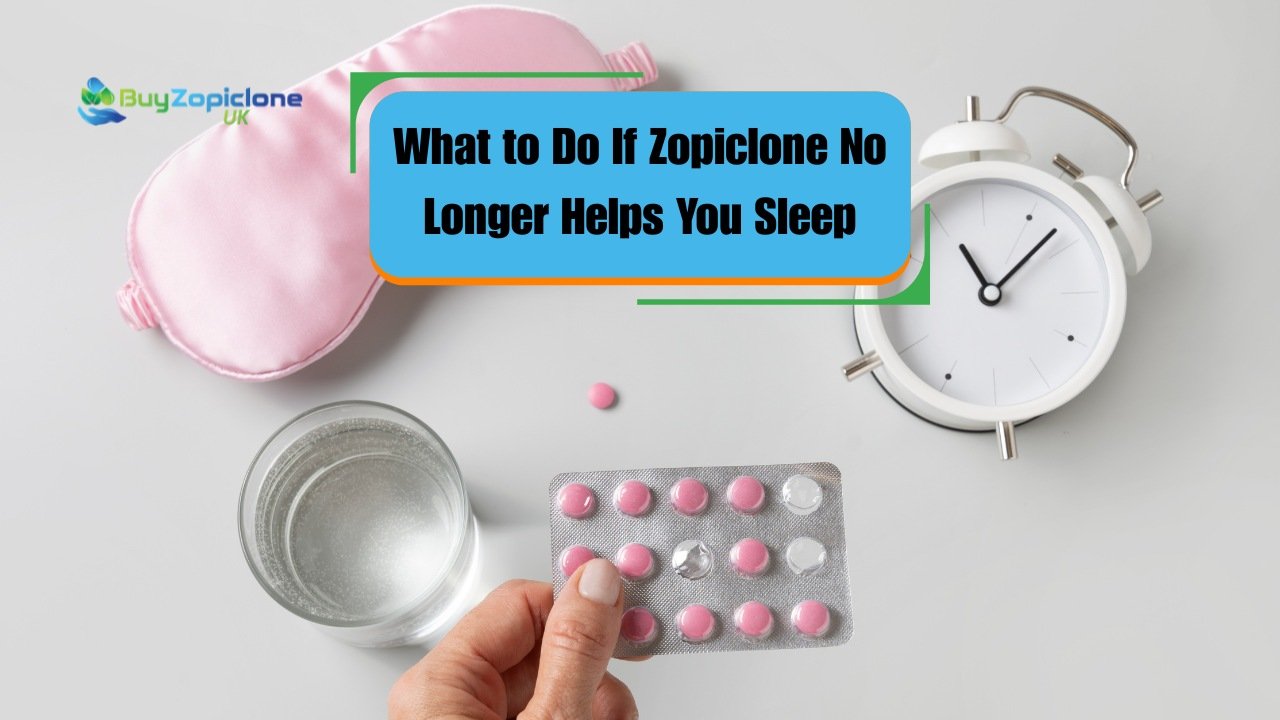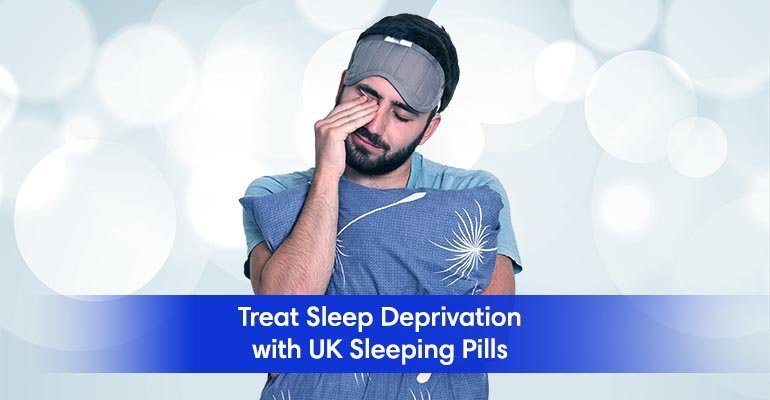Zopiclone can be a very effective solution for short-term relief from insomnia. Many people find it helps them fall asleep faster and stay asleep longer. However, you might find that after a period of use, its effects seem to diminish. If you’re noticing that Zopiclone no longer helps you sleep as it once did, it’s important to understand why this might be happening and what steps you can take.
This article will explore why Zopiclone might become less effective and provide practical advice on what to do next. We will cover the importance of professional medical advice, alternative treatments, and lifestyle adjustments that can improve your sleep.
Understanding Zopiclone Tolerance
One of the primary reasons a sleep medication may stop working is due to tolerance. When your body develops a tolerance to a substance, it means you need a higher dose to achieve the same effect you initially experienced. Zopiclone is generally recommended for short-term use—typically no more than four weeks—precisely to minimize the risk of tolerance and dependence.
If you have been taking Zopiclone for an extended period, your body may have adapted to its presence. This adaptation can lead to a noticeable reduction in its sleep-inducing effects. It is a signal that your current approach to managing insomnia needs to be re-evaluated with the help of a healthcare professional.
Step 1: Consult Your Healthcare Professional
The most critical first step is to speak with your doctor or a qualified healthcare provider. Self-adjusting your dosage or abruptly stopping the medication can be unsafe. Your doctor can provide a safe and structured plan tailored to your specific situation.
Why Professional Guidance is Essential
- Safe Tapering Plan: Suddenly stopping Zopiclone can lead to withdrawal symptoms, which may include rebound insomnia, anxiety, and irritability. A doctor can help you gradually reduce your dose (tapering) to minimize these effects.
- Accurate Diagnosis: Your doctor will assess whether tolerance is the issue or if there are other underlying factors contributing to your sleep problems. New medical conditions, changes in lifestyle, or other medications could be impacting your sleep.
- Exploring Alternatives: A healthcare professional can discuss other prescription and non-prescription options that might be more suitable for your current needs.
Do not increase your Zopiclone dose without medical supervision. Taking more than the prescribed amount can increase the risk of side effects and dependence without necessarily solving the underlying sleep issue.
Step 2: Explore Alternative Treatments
Once you have consulted a professional, you can explore various alternative strategies for managing insomnia. The goal is to find a long-term, sustainable solution for healthy sleep.
Cognitive Behavioural Therapy for Insomnia (CBT-I)
CBT-I is widely considered the first-line treatment for chronic insomnia. It is a non-pharmacological approach that helps you identify and change thoughts and behaviors that are preventing you from sleeping well. CBT-I is a structured program that includes several components:
- Sleep Hygiene Education: Learning and implementing habits that are conducive to good sleep.
- Stimulus Control: Re-associating your bed and bedroom with sleep rather than wakefulness and anxiety.
- Sleep Restriction: Limiting the time you spend in bed to the actual time you are asleep, which can improve sleep efficiency.
- Relaxation Techniques: Learning methods like deep breathing, meditation, or progressive muscle relaxation to calm your mind and body before bed.
CBT-I has been shown to be highly effective and provides long-lasting results without the risks associated with medication.
Other Medications
If medication is still deemed necessary, your doctor might suggest a different type of sleep aid. There are various classes of medications used to treat insomnia, and what works for one person may not work for another. Your doctor can recommend an alternative based on your medical history and sleep patterns.
Also Read: Can Zopiclone Help with Anxiety-Related Sleep Problems?
Step 3: Implement Lifestyle Changes for Better Sleep
Medication can be a helpful tool, but lifestyle and habits play a massive role in the quality of your sleep. Improving your sleep hygiene can make a significant difference, whether you are taking medication or not.
Create a Relaxing Bedtime Routine
Your body needs cues to know it’s time to wind down. An hour before bed, engage in calming activities.
- Take a warm bath or shower.
- Read a book (a physical one, not on a screen).
- Listen to calm music or a podcast.
- Practice gentle stretching or meditation.
Avoid stimulating activities like working, watching intense television shows, or having serious conversations right before bed.
Optimize Your Sleep Environment
Your bedroom should be a sanctuary for sleep. Make sure it is:
- Dark: Use blackout curtains or an eye mask to block out light.
- Quiet: Use earplugs or a white noise machine to mask disruptive sounds.
- Cool: The ideal temperature for sleep is generally between 16-18°C (60-65°F).
Reserve your bed for sleep and intimacy only. This helps your brain associate your bed with rest, not with activities like working, eating, or watching TV.
Be Mindful of Diet and Exercise
What you consume and how you move your body during the day can have a profound impact on your sleep at night.
- Avoid Caffeine and Nicotine: These are stimulants that can interfere with sleep. Avoid them, especially in the afternoon and evening.
- Limit Alcohol: While a drink might make you feel drowsy initially, alcohol disrupts sleep later in the night, leading to a less restful experience.
- Don’t Go to Bed Hungry or Stuffed: A light snack before bed is fine, but a large meal can cause discomfort.
- Exercise Regularly: Daily physical activity can improve sleep quality. However, try to avoid vigorous exercise within a few hours of bedtime, as it can be too stimulating.
Maintain a Consistent Sleep Schedule
Go to bed and wake up at the same time every day, even on weekends. This consistency helps regulate your body’s internal clock, or circadian rhythm, making it easier to fall asleep and wake up naturally.
Moving Forward to Better Sleep
Finding that Zopiclone is no longer working can be disheartening, but it’s also an opportunity to build healthier, more sustainable sleep habits. The key is to take proactive steps and seek professional guidance. By working with your doctor, exploring therapies like CBT-I, and making positive lifestyle changes, you can find a long-term solution for restful nights. Remember, managing insomnia is a journey, and there are many paths to achieving better sleep.
Also Read: How Long Does Zopiclone 3.75 Take to Work? A Complete Guide to Faster, Safer Sleep





